Getting better at managing your time can be good for your mental health. Here are tips to help you plan your time and achieve your goals. Includes tips on managing email and focusing on work tasks.
Stressed and worn out with the amount of work you need to do? Getting to the end of each week with a longer and longer to-do list? This might be due to the design of your job or team structure or department culture. It might also be because of the way you use your time.
You may not be able to do much about the former, but you can look at how you manage your time and make positive changes.
Poor time management, procrastination, distraction and self-control are all bad habits we get into. Making some changes, using new techniques and breaking the cycle can help you to manage your time well. This can help you to regain a feeling of control and improve your wellbeing at work.

Why time management matters
The benefits of good time management include:
- increased productivity
- increased work success
- improved working relationships
- improved mood
- decreased stress and depression
- increased self-awareness
The perception that time controls us can lead to stress. By taking control of our own use of time, we can reduce stress and build resilience. There is a strong relationship between satisfaction with time use and wellbeing.
A little self-care each week can help rejuvenate and refresh us to be able to tackle to-do lists and anything else life throws us. Organising and prioritising is important, but in order to be effective, you need to listen to your energy levels and needs.
Addressing your time management can have an impact on your day-to-day working life. It can also help you to look at the bigger picture. What do you want to prioritise or achieve in your career or personal life? Time management can help you focus on your long-term as well as short-term goals.
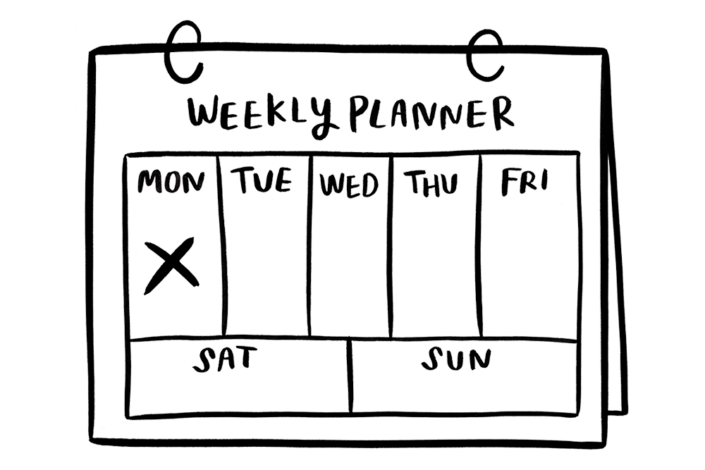
Hints and tips
Here’s some tips to help you plan your time and achieve your goals.
By investing time to reflect and prioritise your day, you can become smarter, more focused and better manage your wellbeing at work.<

Use a to-do list
- Keep one to-do list rather than multiple lists.
- Set time aside to create a weekly to-do list and then order and prioritise according to urgency and importance. You might do this last thing on Friday or first thing on Monday, whenever works best for you.
- Can you put off or delegate non-urgent tasks? If these are big pieces of developmental work which need doing but the urgent jobs get in the way, can you find a way to schedule and protect some time for them?
- Keep your list close to you. Maybe your list works best on paper – in a diary or notebook you use every day? Or via a digital calendar or project management tool on your phone or desktop? Use whatever is most accessible to you. Don’t underestimate the positive feeling of ticking off or striking through or deleting a completed task!
Set boundaries
We all have tasks to complete each day, whether at work or family related. Boundaries help to protect the amount of time you have for each. With many of us now working from home, the edges between home, work, relationships and social life have become even more blurred.
Setting boundaries is key. This might mean switching your notifications off at the weekend or always finishing work at a certain time. It might mean running shorter meetings or ensuring you have breaks between them.
Boundaries also means sometimes saying ‘no’ which can be hard.

Have a lunch break
A lunch break is a good example of a positive boundary. It’s so easy to work through lunch but it can be counterproductive. A break of thirty minutes away from your desk will make the afternoon more productive. Go outside or take some exercise to return re-energised, with a fresh set of eyes and a renewed focus.
Our annual Mega Miles Challenge is an opportunity to challenge yourself, improve your wellbeing and raise money. A midday breather creates natural breaks that help to divide up projects and tasks into manageable chunks.
Focus on results
To optimise tasks, aim for quality, not quantity. Concentrate on the results of what you achieve rather than how busy you are. Spending more time on something doesn’t always achieve more. An extra hour at work may not be the most effective way to manage your time.
- Assess the current state of play.
- Set SMART goals (Specific, Measurable, Achievable, Realistic and Timed).
- Prioritise tasks.
- You could even monitor where your time is spent by using an app or platform such as Toggl.

Prioritise important tasks
Time management is not about getting everything done. It is about having enough time for what matters most. It’s a necessary skill for a better quality of life.
Managing time in a more efficient way not only gets the right things done, but also gives you time to relax, de-stress and breathe.
Group your tasks into categories as follows:
- urgent and important
- not urgent, but important
- urgent, but not important
- neither urgent nor important
People who manage their time well concentrate on doing the ‘not urgent but important’ tasks in order to prevent them from becoming ‘urgent and important’.
Get better at reducing the number of urgent and important tasks. Having too many urgent tasks can quickly become stressful.

Manage your email
Leaving your inbox open all day, responding to each message when it comes in, can cause a huge split in your attention. This can make it hard to accomplish other things. Instead, block out time specifically for dealing with your inbox.
- Work out how long you need to spend on emails each day. Are there times of the day which are more critical?
- Define the number of email sessions you will need in a day, and how long each will last. Block these into your calendar for tomorrow.
- Treat these sessions as you would any other meeting – show up, focus only on the task, finish on time. Don’t email out of these times.
- Having a clear deadline to get your emails done will help you to work more efficiently.
- Clear boundaries for working time will help you to focus on tasks which require your full attention.
- You’ll reduce the amount of time you spend in ‘fight or flight’ induced by constantly checking for the arrival of good or bad news.
- You won’t get this right the first time – there is a tension between the ‘want’ and ‘need’ of how much time you spend on your emails. Take your best guess and then at the end of the following day, re-assess. Not all days will be the same, perhaps your emails peak on a Monday and reduce during the week?Ultimately find a balance that helps serve your goals.
- Further reduce email stress by looking at your inbox like this.
- Delete: can you delete half the emails you get immediately?
- Do: is the email urgent or can be completed quickly?
- Delegate: can it be better dealt with by someone else?
- Defer: set aside time later for emails which require focus time.
The Pomodoro technique
This technique helps you to break your work up into distinct chunks which have a clear beginning, middle and end.
How it works
- Get a physical timer (such as an oven timer or digital watch) so you can measure blocks of time with a clear signal telling you when time is up.
- Set it for 25 minutes while defining for yourself what your focus will be for this period. At the end, briefly assess if you stayed on track.
- Set the timer for five minutes, and use this time to take a quick break, then repeat another 25 min block. Every four sessions, take a longer break.
Benefits
- This method makes it clear what your immediate focus is to help you spot when you are being distracted by other things such as email or social media.
- It helps you to be more present and stop the feeling of sitting down at a screen and suddenly realising that hours have slipped by without you noticing.
- It increases your ability to estimate how long various digital tasks will take, making it easier to plan and organise your day.
Tips
Working with the Pomodoro technique is a discipline. The first few sessions can be really helpful, but sticking to this habit throughout the day can take some time to establish. It’s fine not to use it all the time. It can sometimes be most effective as a tool to help you create a clear focus and boundary to get a specific task or project done.

Useful videos
We found these YouTube videos on time management helpful:
- David Grady: How to save the world (or at least yourself) from bad meetings (6 minutes 44 seconds)
- Stefan Sagmeister: The power of time off (17 minutes 37 seconds)
- Kelly McGonigal: How to make stress your friend (14 minutes 29 seconds)
- Paulo Cardini: Forget multitasking, try monotasking (2 minutes 52 seconds)
- David Pogue: 10 top time-saving tech tips (5 minutes 45 seconds)
- Work Smart: How to write a to-do list (2 minutes 28 seconds)
The art of switching off
Business Psychologist Maria Dimitreli provides the best ways and means to ‘switch-off’, and how to maintain a healthy attitude and balance to work and life.
Can’t see the video? Watch on Vimeo.
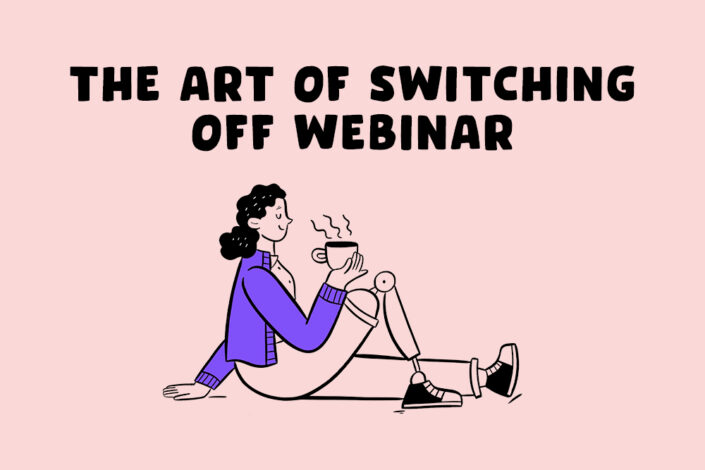
How we can help and support you
Related pages
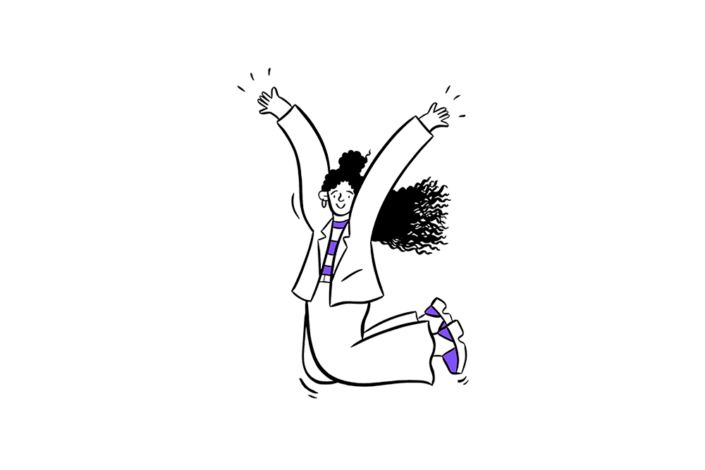
Whatever you are coping with, we can listen and find ways to help.
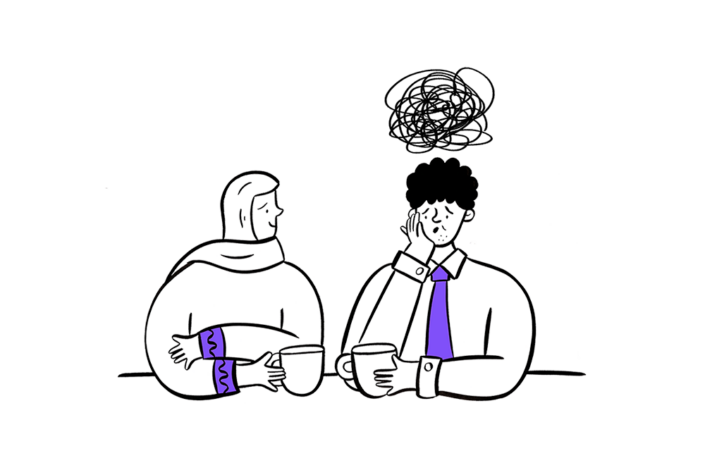
When a relationship breaks down, the stress can take over your life. Whatever’s going on, we’re on hand to support you through it.
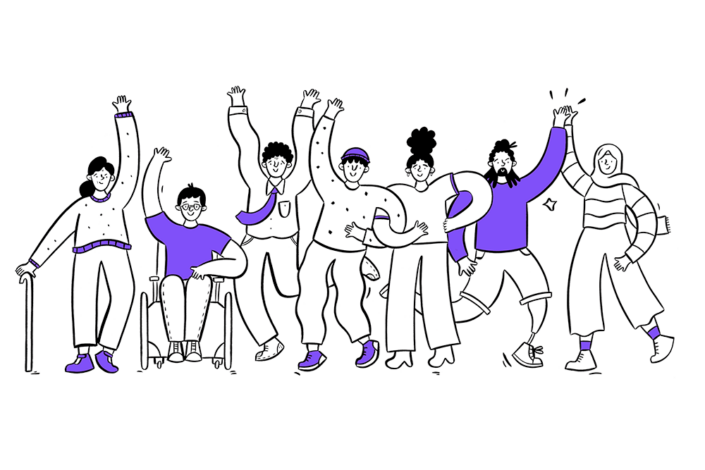
Make a life-changing difference to a civil servant when they most need it. Fundraise, donate or volunteer your time.

